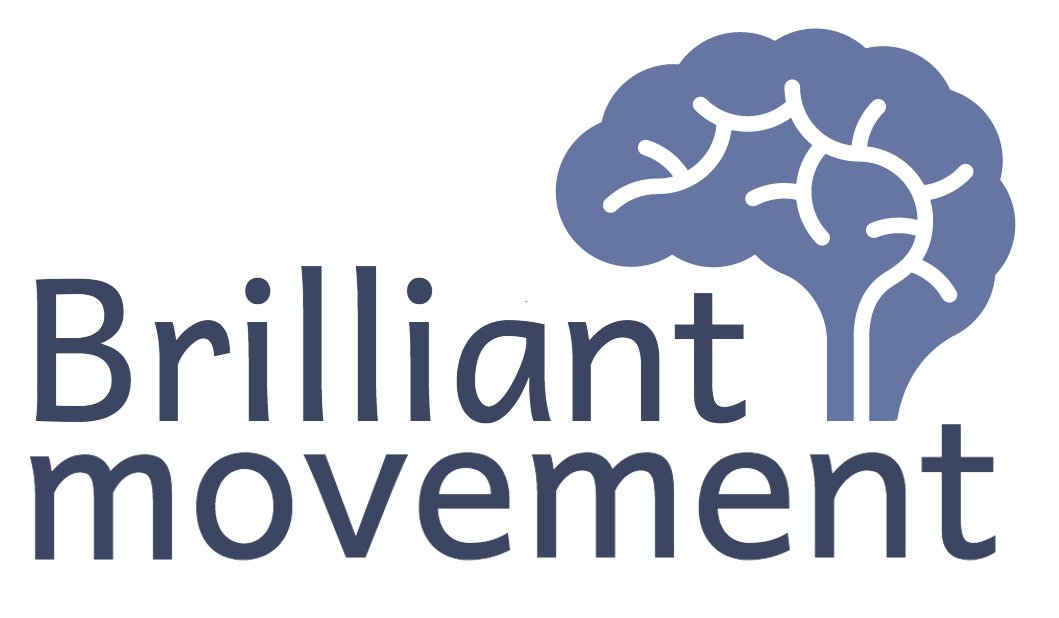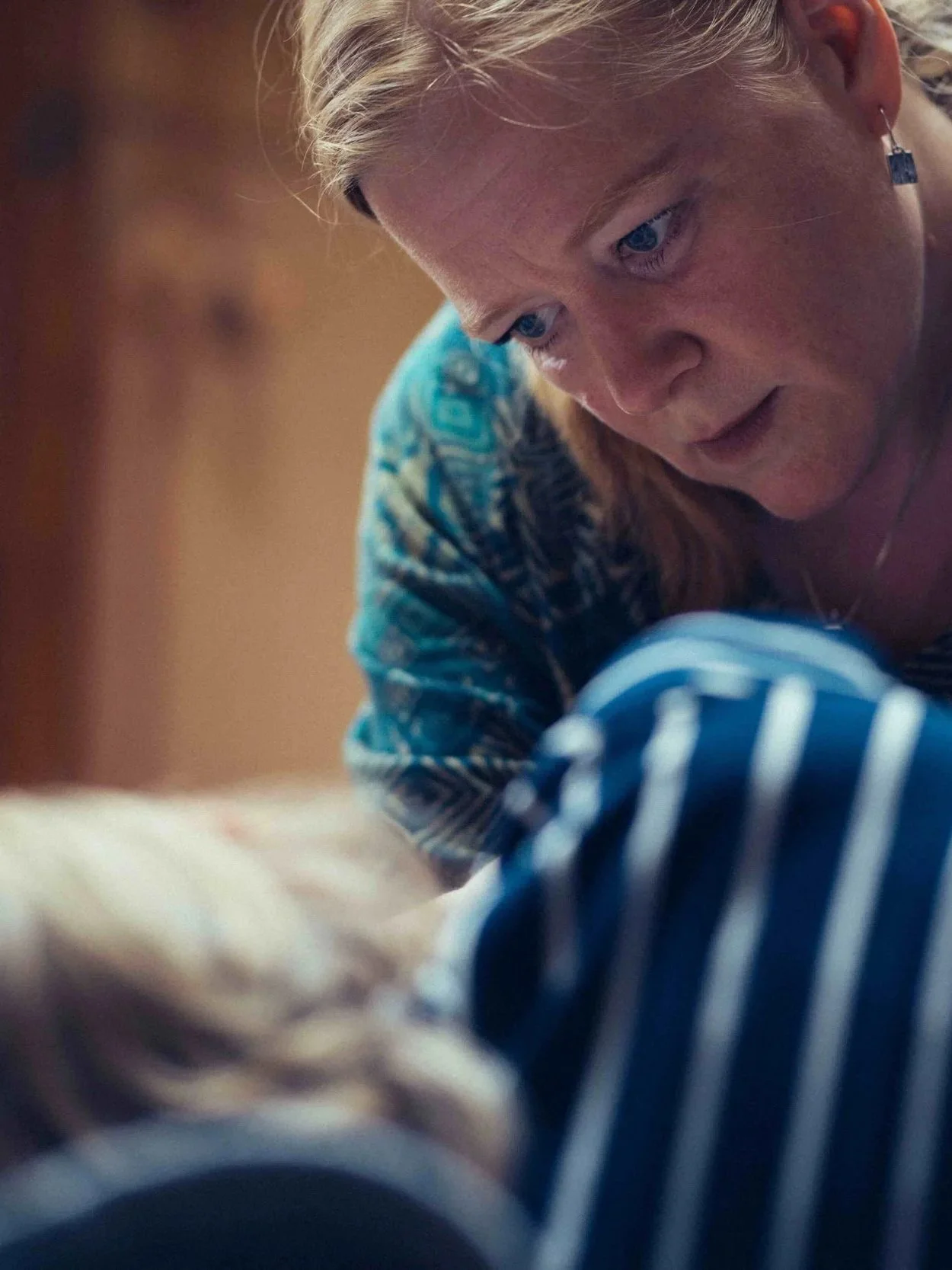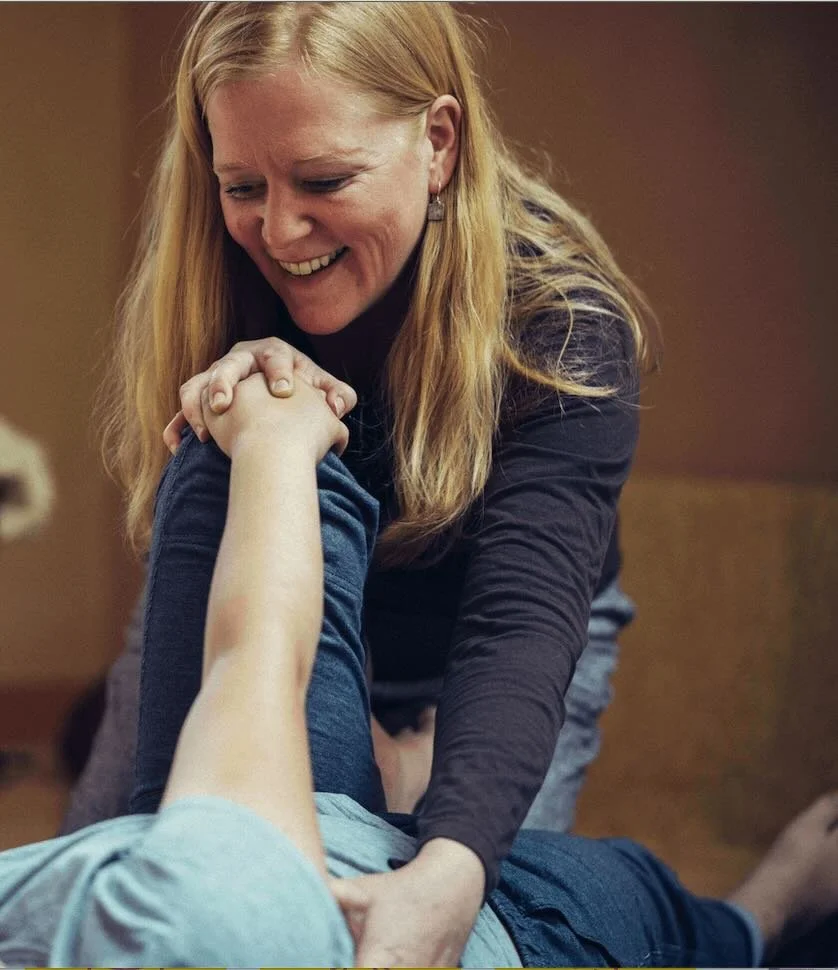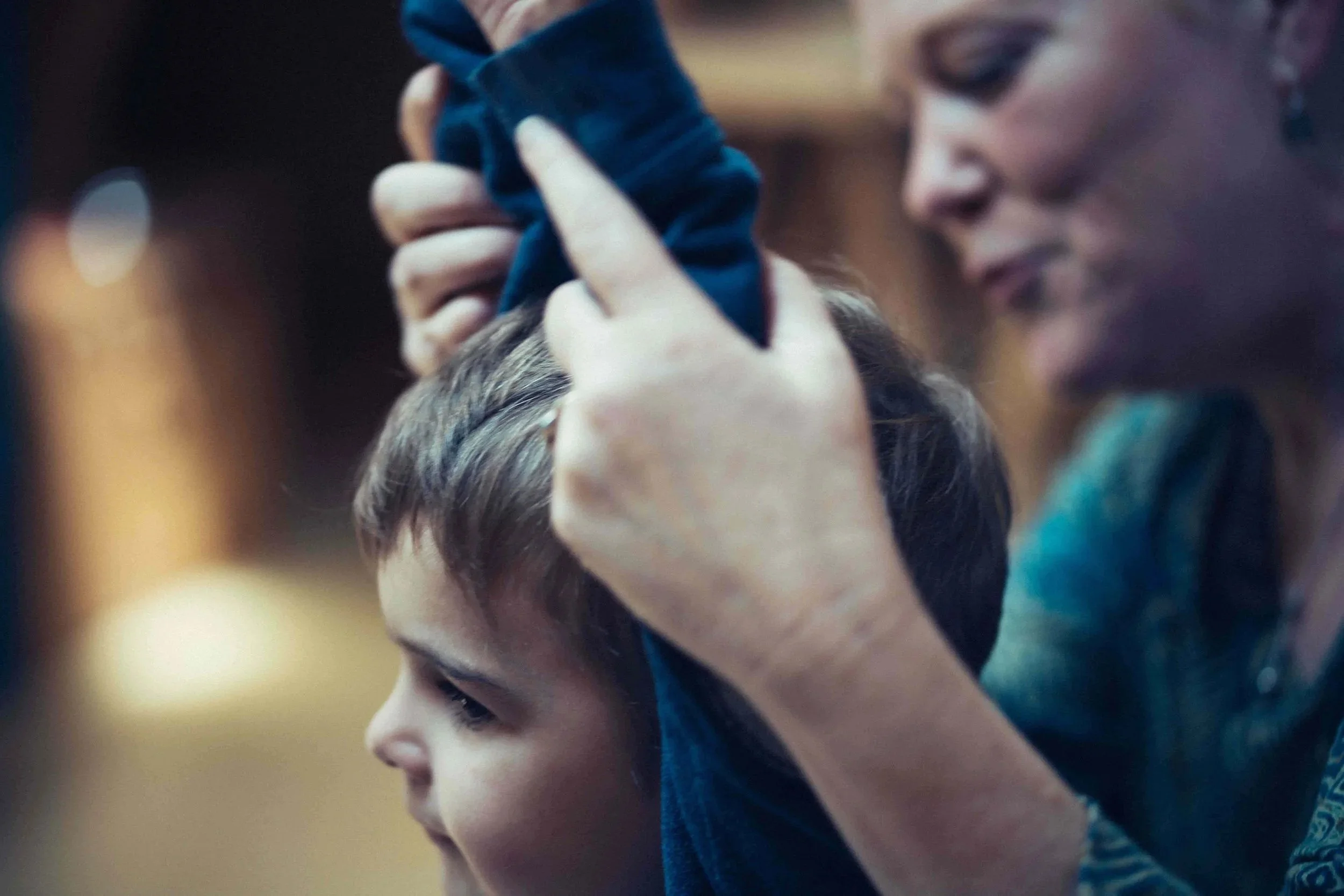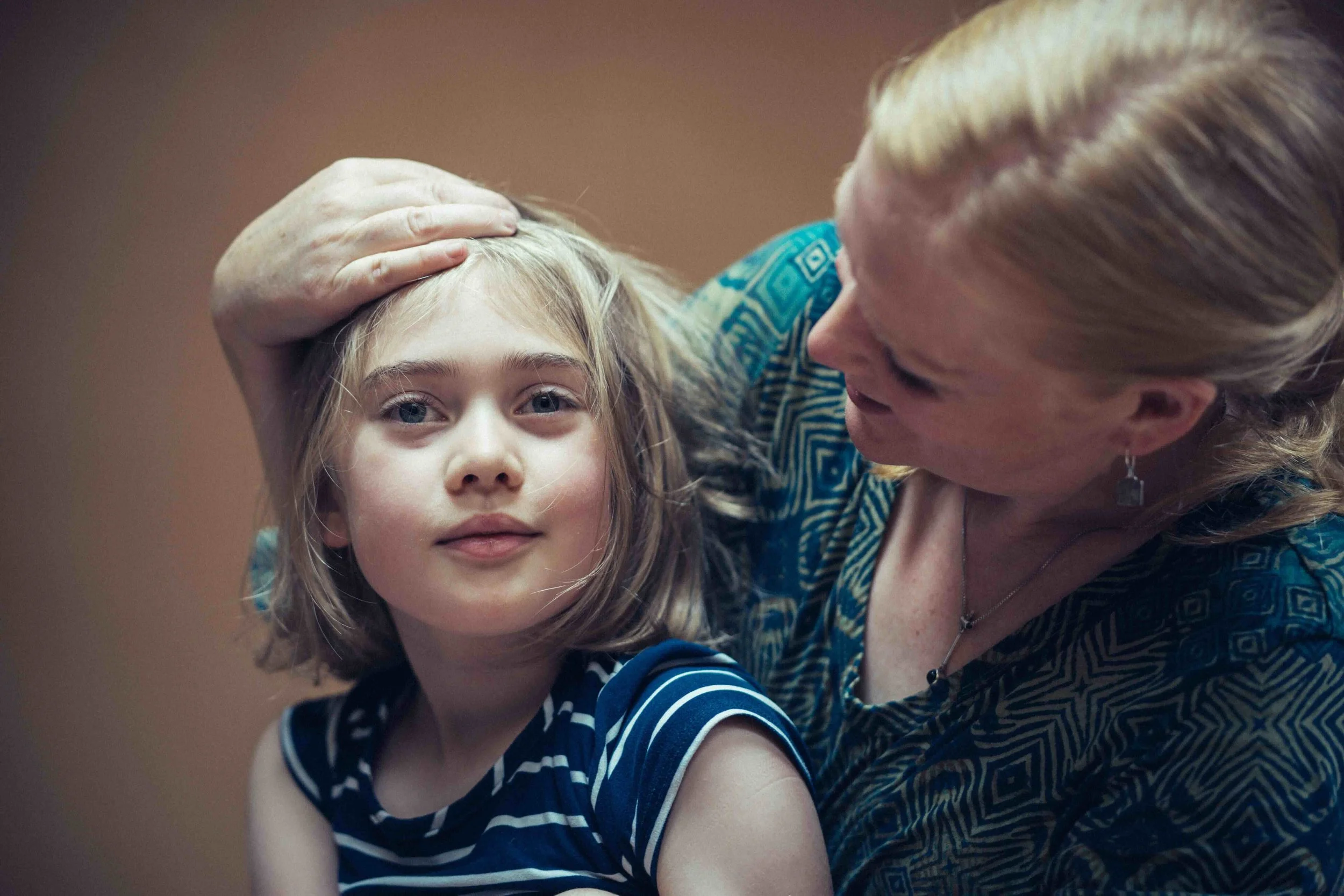When Every Day Feels Like a Battle: Parenting a Child with Autism
If you’re raising a child on the autism spectrum, you already know: it’s not just about one thing.
It’s the sensory meltdowns in the grocery store.
The heartbreak when birthday parties become overwhelming.
The daily tug-of-war between wanting your child to join in and protecting them from situations that feel unbearable.
Parenting a child with Autism Spectrum Disorder (ASD) can feel like living in two worlds at once.
One world is full of love, wonder, and the fierce joy of your child’s unique gifts.
The other is full of appointments, therapies, and moments where the future feels uncertain.
I see you.
And I want you to know there is a gentler, brain-based way to support your child’s growth and calm.
NeuroMovement®
for Autism Spectrum Disorder
A Parent’s Perspective
“Phoebe MacRae and her Anat Baniel Method work with our son has been miraculous.
His behavior challenges have decreased, his food aversions have abated, his aggression has lessened, he SLEEPS through the night, yet, most of all, we have renewed hope for our son.
Autism doesn’t have to impede him from happiness, in his life, or within our family.”
— Barbara K.
Parents like Barbara often describe what happens when their child experiences NeuroMovement® as nothing short of transformational.
While every child is unique, families frequently see shifts in behavior, calmness, and connection that feel like new possibilities opening up.
Understanding the Challenges of Autism
Autism is not just about communication differences. Parents often find themselves navigating:
Sensory overload: noises, lights, and textures that feel unbearable to the nervous system
Social struggles: difficulty joining play, making friends, or responding in expected ways
Repetitive behaviors: rocking, spinning, or scripting that outsiders may not understand
Communication barriers: echolalia, late speech, or challenges expressing needs
Daily unpredictability: transitions, school, and new environments that can trigger meltdowns
Each of these challenges can leave parents exhausted.
Many feel pressure to do everything — speech therapy, occupational therapy, ABA, school supports — yet still wonder if something is missing.
Why Traditional Approaches Can Feel Limited
Many therapies and supports do provide help.
But parents often share a quiet unease when interventions focus too heavily on compliance or repetition.
The goal can feel like making a child act “normal” instead of honoring who they truly are.
Autism is not a mechanical problem to be fixed.
It is a different way of experiencing the world.
And your child’s brain is capable of remarkable growth when given the right conditions.
That is where NeuroMovement® comes in.
What Is NeuroMovement®?
*
What Is NeuroMovement®? *
NeuroMovement® is an evidence-based, brain-focused method that creates new neural connections through gentle, mindful movement.
Developed by Anat Baniel, it evolved from the Feldenkrais® Method and has been used worldwide with children who learn and develop differently.
Rather than forcing a skill or drilling repetition, NeuroMovement® creates the conditions for the brain to learn.
Each small movement offers the brain fresh information — the raw material it needs to rewire itself.
Over time, children discover new possibilities for:
Calming their nervous system
Expanding movement and coordination
Improving focus and attention
Building greater ease in communication and social interaction
How NeuroMovement®
Helps Children with Autism
Social, communication, and behavioral challenges in autism are all rooted in the functioning of the brain.
Anat Baniel Method® NeuroMovement® upgrades the functioning of the brain by providing the conditions and the information it needs to change.
The method uses a natural body/brain process to create new learning and new brain wiring.
This new wiring helps children with autism encounter and relate to the world differently.
Some common outcomes parents notice include:
Improved sensory processing, motor skills, strength, coordination, balance, and stability
Development of interpersonal relationships, including more eye contact and connection
Improved attention and concentration, with increased focus and organization skills
Higher self-esteem through mastery of physical movement
Notes from a Mom
After NeuroMovement® lessons, one parent shared these changes she noticed in her child with autism:
Eyes lifting up for hugs or to be picked up
Looking across the room to make contact
Walking movements with feet while lying down
Saying “no” more — beginning to assert himself
Turning toward or away from things with more intention
Moving toward something of interest (including Mom)
Playing independently with a toy
Greater tolerance of everyday sounds like the dishwasher, washer, dryer, and running water
These may sound small on paper, but to a parent watching new possibilities emerge, they are deeply meaningful signs of growth.
Why Gentleness Matters
For children with autism, the world can already feel overwhelming.
Pushing harder, drilling longer, or forcing compliance often backfires.
NeuroMovement® is different.
Every lesson is about creating safety, curiosity, and possibility.
We slow down.
We explore.
We meet your child exactly where they are,
without judgment.
And from there,
growth unfolds
naturally.
Explore NeuroMovement® for Your Child
If you are feeling exhausted by the daily challenges of autism,
or you are looking for an intervention option that is
brain-friendly, respectful, and joyful,
I invite you to explore NeuroMovement®.
📞 Call me directly at
(971) 266-1911
💻 Book a free consultation online
